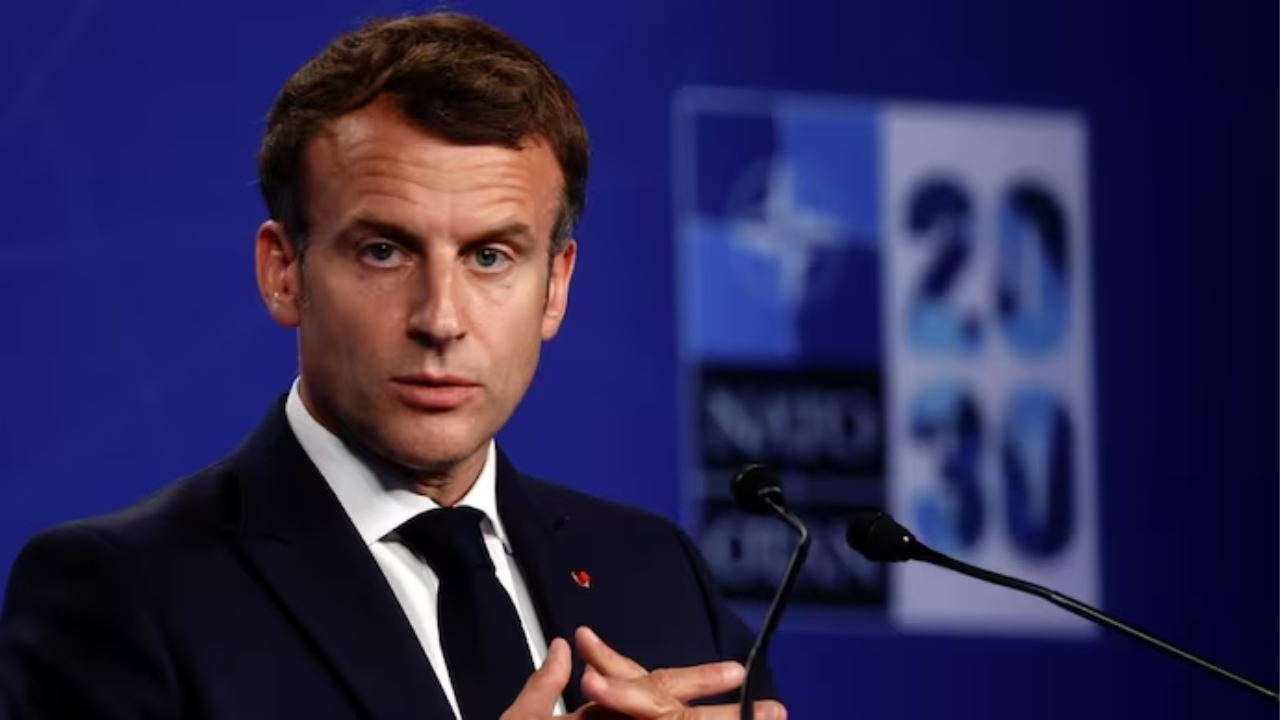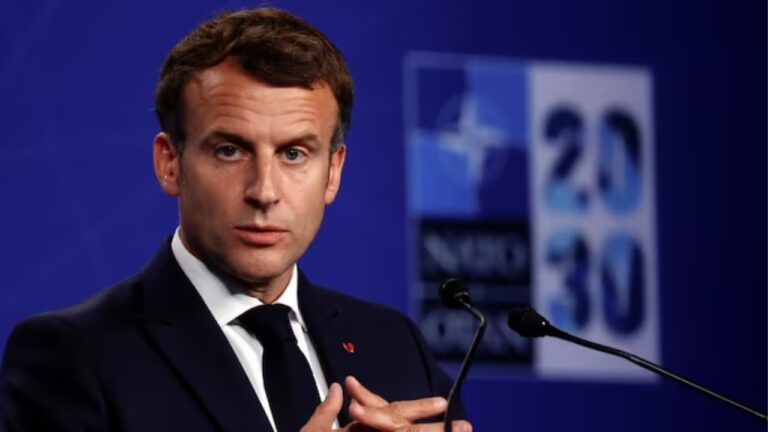
French President Emmanuel Macron
Photo: AP
Key highlights
- A left-wing coalition that unexpectedly formed ahead of France’s general election won the most seats in parliament.
- In an unexpected prediction, President Emmanuel Macron’s centrist coalition came in second and the far right in third.
- With no alliance able to secure a majority, France was plunged into political and economic chaos.
An unexpected left-wing coalition FranceIt won the most seats in parliament voted for in France’s surprise general election, according to opinion poll projections on Sunday, with President Emmanuel Macron’s centre-right coalition coming in second and the far-right in third, in an unexpected forecast.
The failure of any single party to win a majority has plunged France into political and economic chaos, with the final result of a highly precarious general election called just four weeks ago in a big gamble for Mr Macron not expected to be announced until late Sunday or early Monday.
According to projections, the deeply unpopular president lost control of parliament, and Marine Le Pen’s far-right party made a big gain in seats, but fell far short of expectations.
The sudden legislative elections in this nuclear-armed country and major economy will have implications for the war in Ukraine, global diplomacy, and the economic stability of Europe.
France now faces weeks of political maneuvering to decide who will become prime minister and lead parliament, and Mr Macron faces the prospect of leading the country with a prime minister who opposes most of his domestic policies.
French leftist leaders Jean-Luc Mélenchon Mr. Mélenchon called the prediction “a great relief for the majority of our country” and called for the prime minister to resign. Mr. Mélenchon is the most prominent of left-wing leaders who have unexpectedly rallied together ahead of two general elections.
If that forecast is confirmed in official figures due to be released late Sunday or early Monday, it will plunge France, a pillar of the European Union and its second-largest economy, into a moment of great uncertainty: it is completely unclear who will be the prime minister to run France alongside President Emmanuel Macron.
The timing of France’s political plunge into the unknown could hardly be worse: With the Paris Olympics opening in less than three weeks and the world watching, the country will find itself grappling with domestic instability.
The parliamentary elections were a major setback for Macron, 46, who is a centrist. After the European elections saw a surge in far-right support in France, he surprised many in France and his own government by dissolving the National Assembly, the lower house of parliament.
Macron claimed he would bring “clarity” to France by bringing voters back to the ballot box. The president was betting that because France’s fate is in their hands, voters might return to more centrist, mainstream parties from the far-right and far-left. Macron drew a lot of support from the centrist, mainstream parties that had dominated his 2017 and 2022 presidential elections. That, he hoped, would strengthen his remaining three years in office.
But in France’s increasingly polarized political landscape, far from supporting Mr Macron, millions of voters on both the left and right saw his surprise decision as an opportunity to vent their anger and sideline him by casting him in a parliament that is likely to be populated by lawmakers hostile to him and, in particular, his pro-business policies.
In the first round of voting last weekend, voters supported the far-right National Rally candidate in greater numbers than they did in the European Parliament elections, with the left-wing coalition coming in second and the centre-right coalition a distant third.
A hung parliament, with no party coming close to winning the 289 seats needed to gain an absolute majority in the National Assembly, the more powerful of France’s two major legislative bodies, is uncharted territory for modern France and would lead to political turmoil.
Unlike other European countries accustomed to coalition governments, France has no tradition of lawmakers from opposing political camps coming together to form a majority.
The sharp polarization of French politics, particularly this fierce and fast-paced election campaign, will undoubtedly complicate coalition-building efforts. Racism, anti-Semitism and a Russian disinformation campaign marred the race, with more than 50 candidates reporting physical attacks, highly unusual in France. The government has announced the deployment of 30,000 police to Sunday’s runoff election, signaling both high stakes and concerns that a far-right victory, or even a clear victory for no side, could spark protests.
The hastily assembled majority is fragile and there is a risk that a vote of no confidence could topple the government.
Prolonged uncertainty could strengthen calls from opponents for Macron to cut short his second and final term in office. The French constitution bars him from dissolving parliament again within the next 12 months, which is unlikely to bring greater transparency to France.

